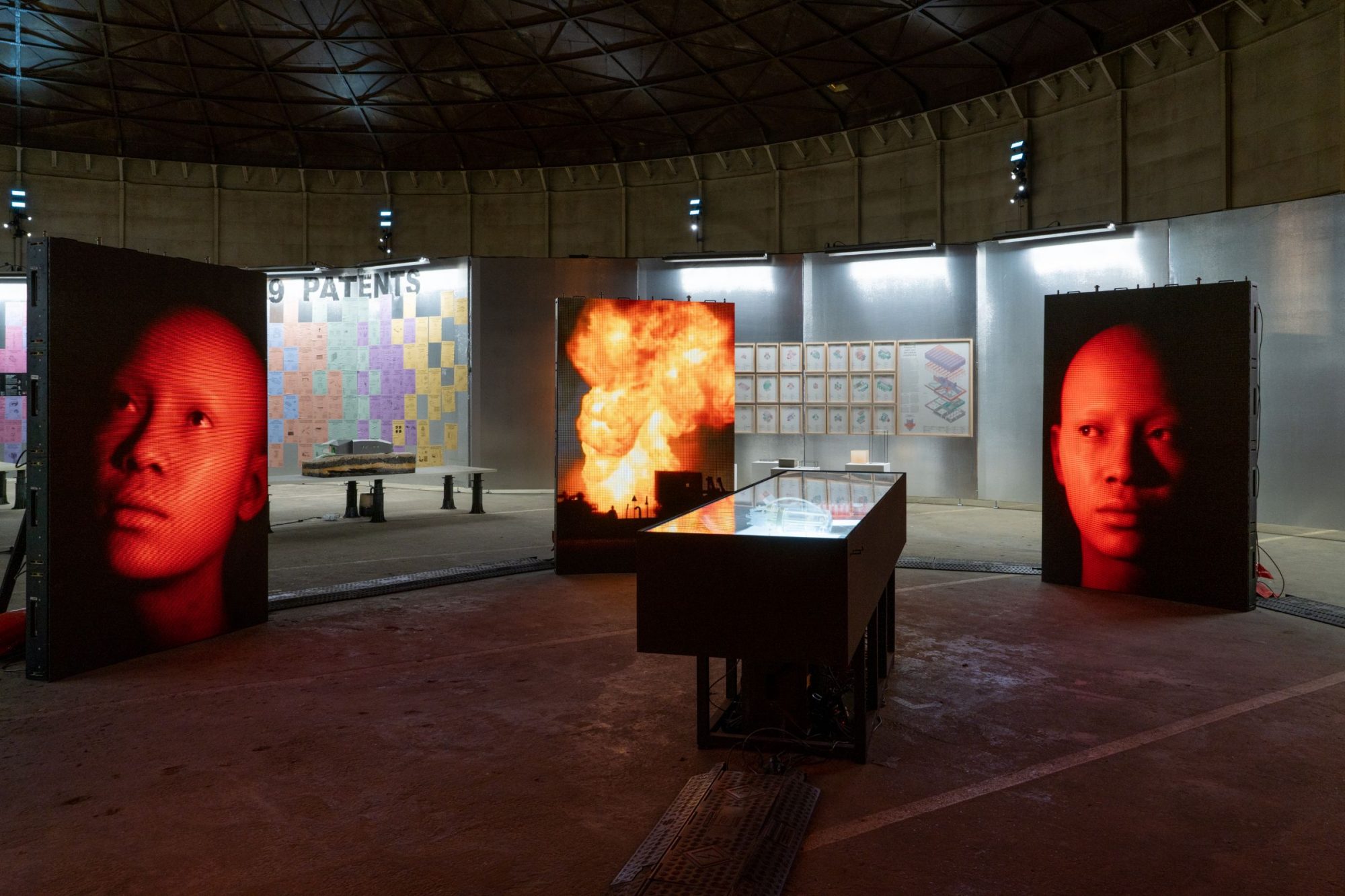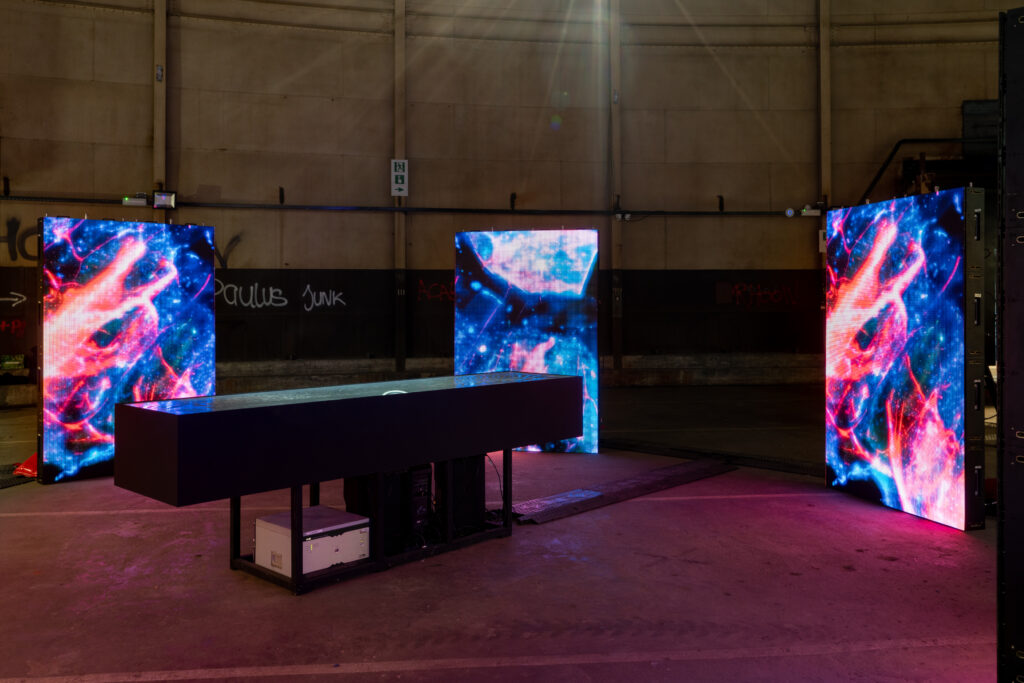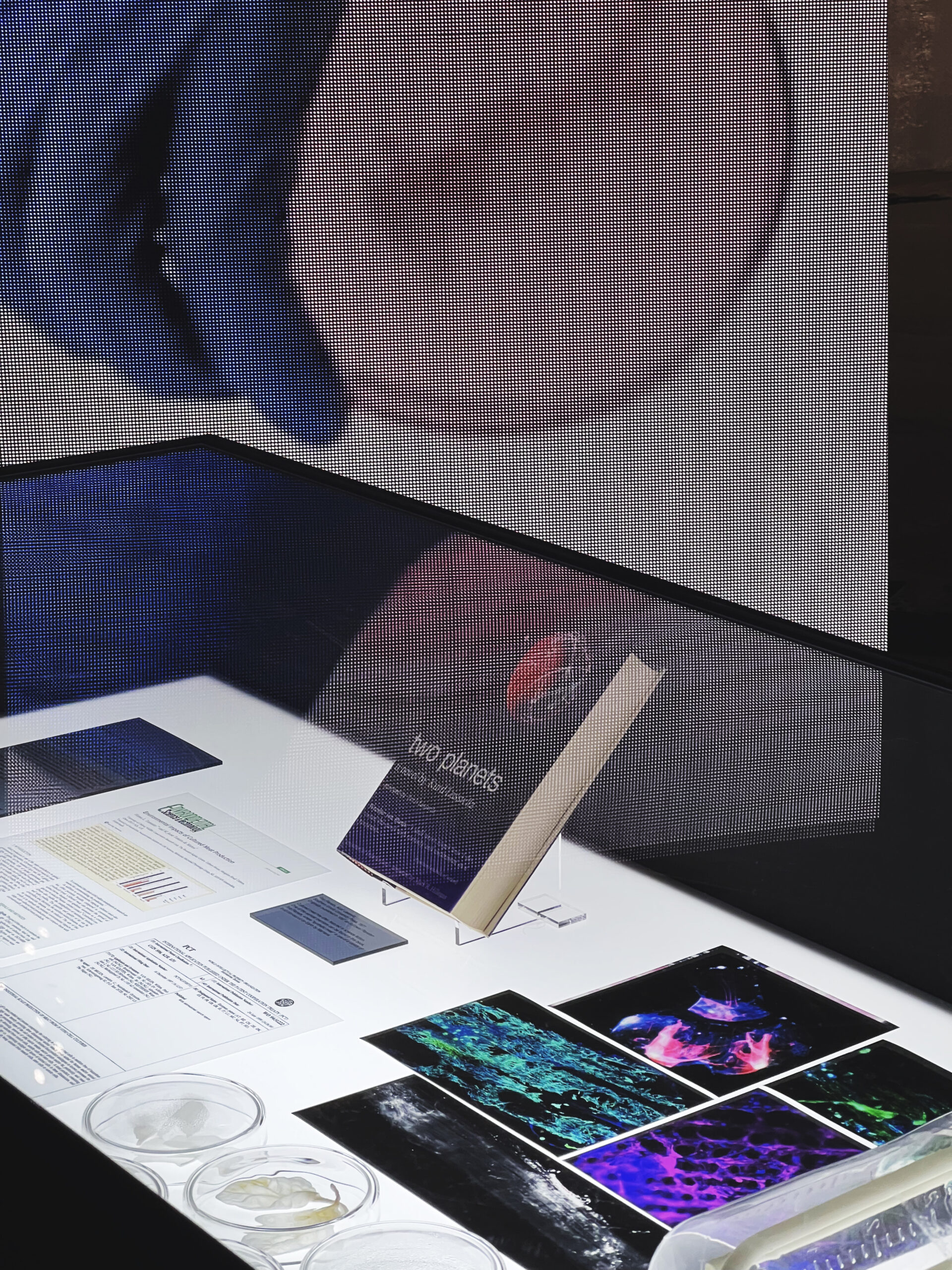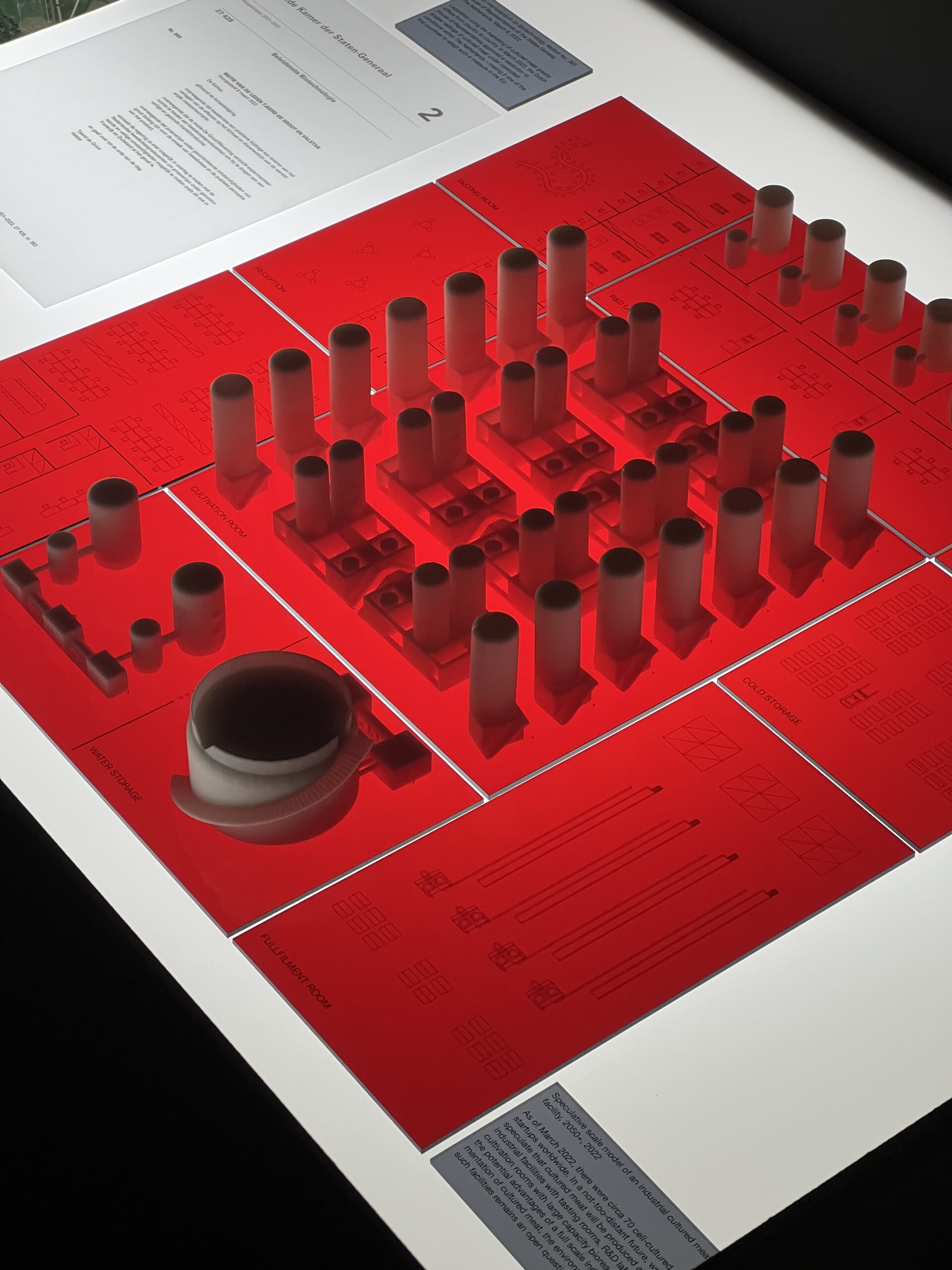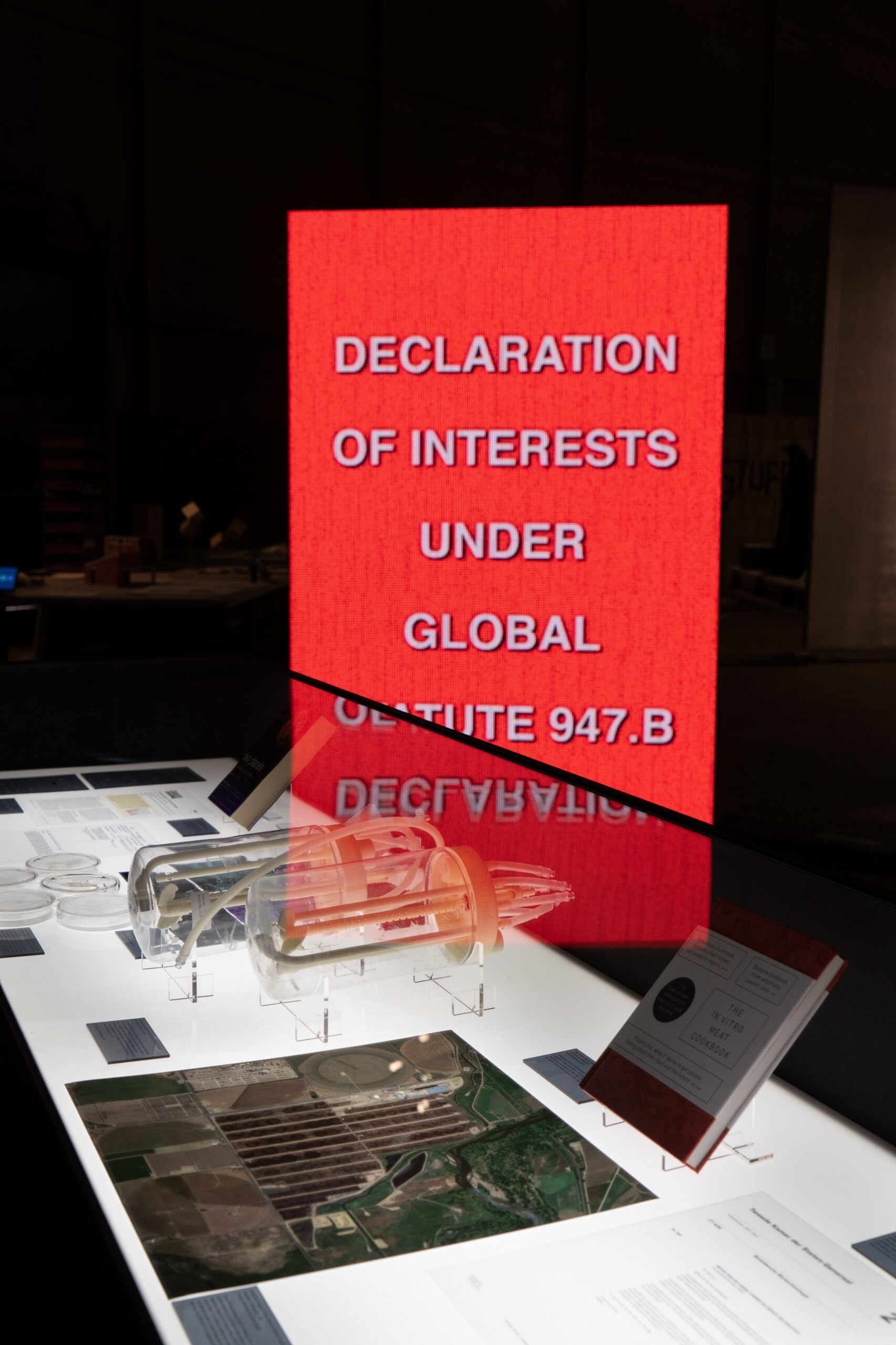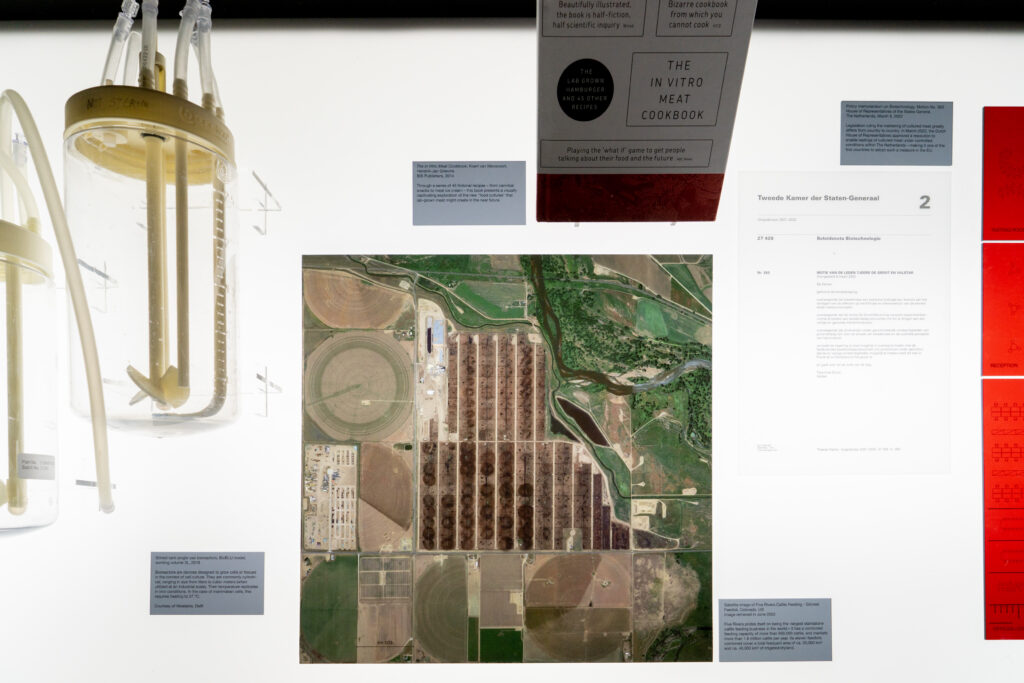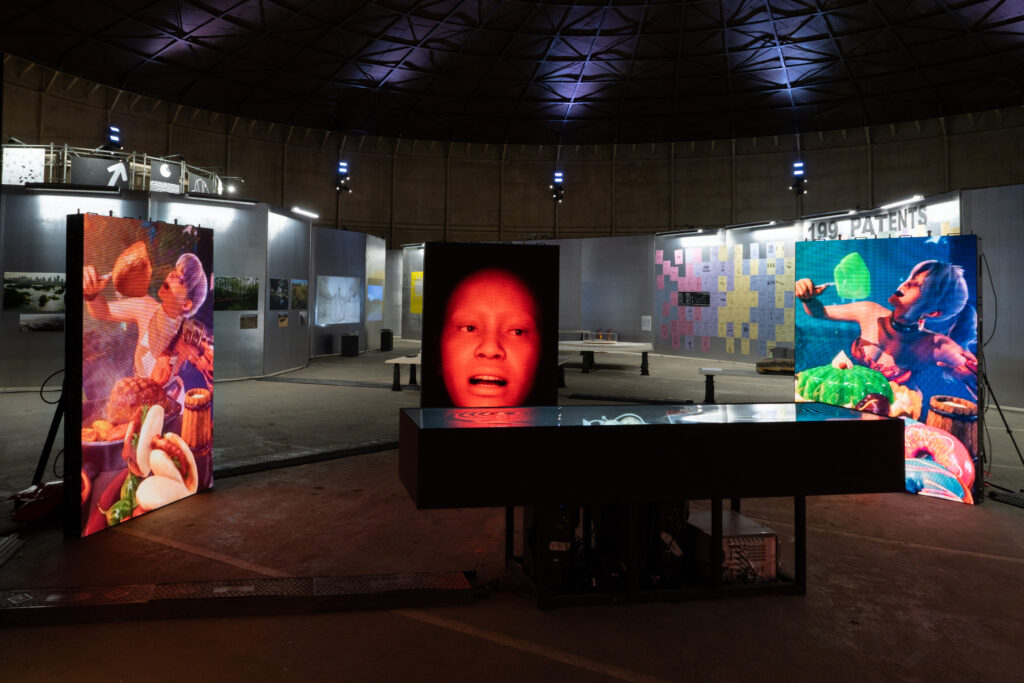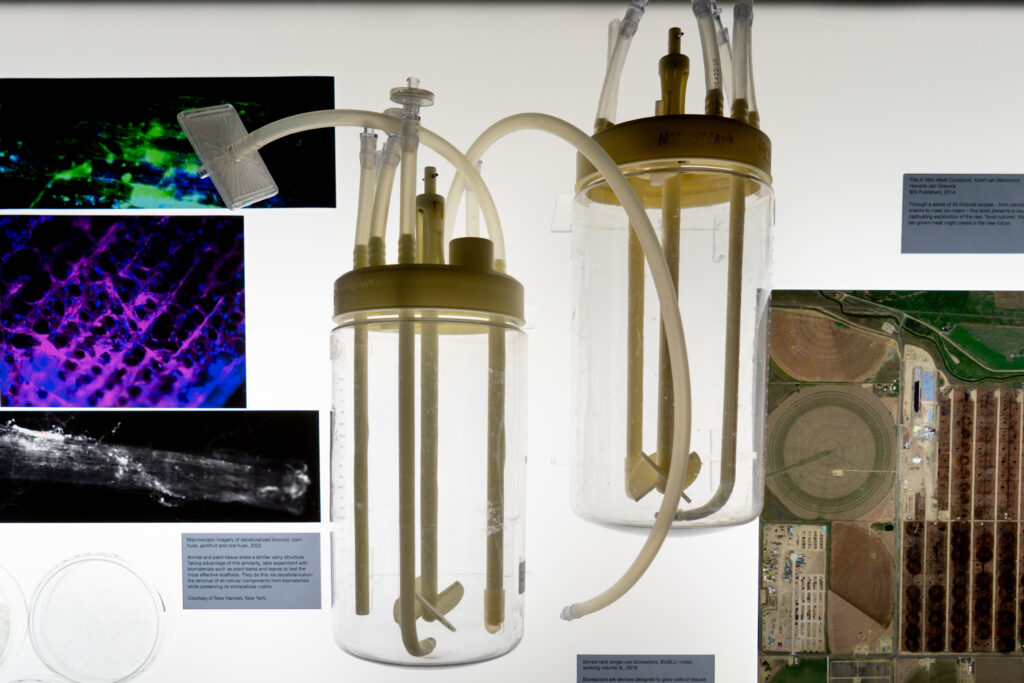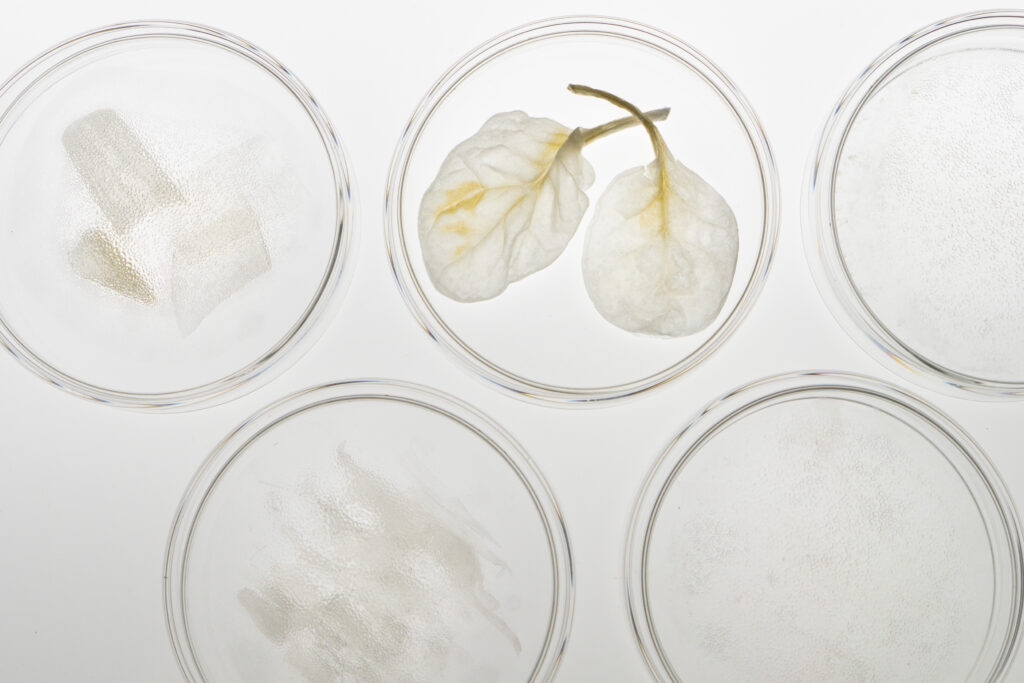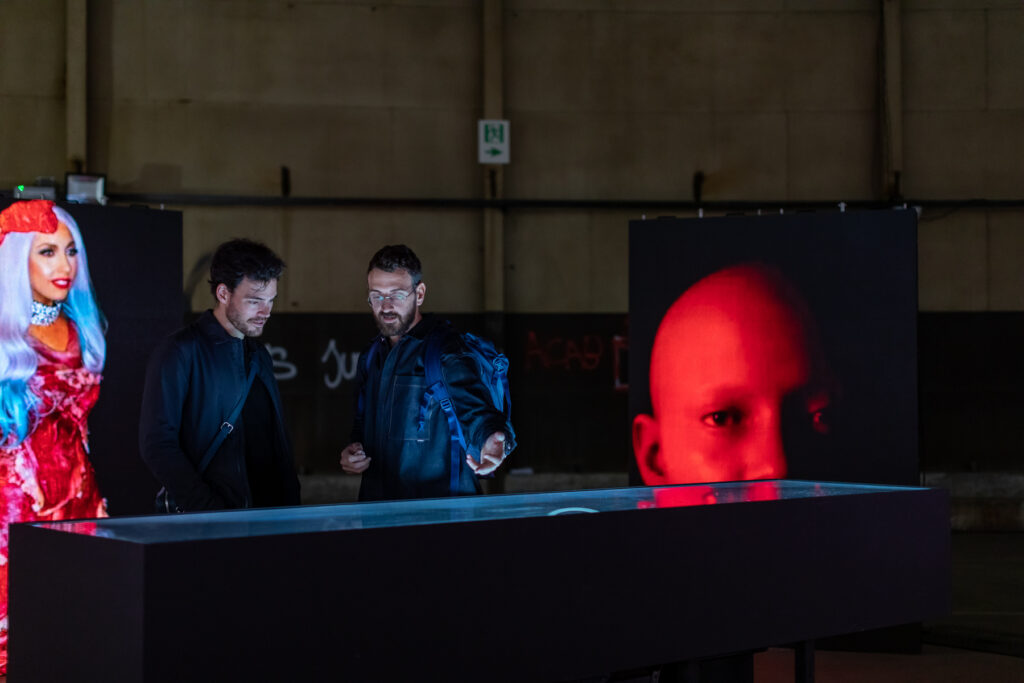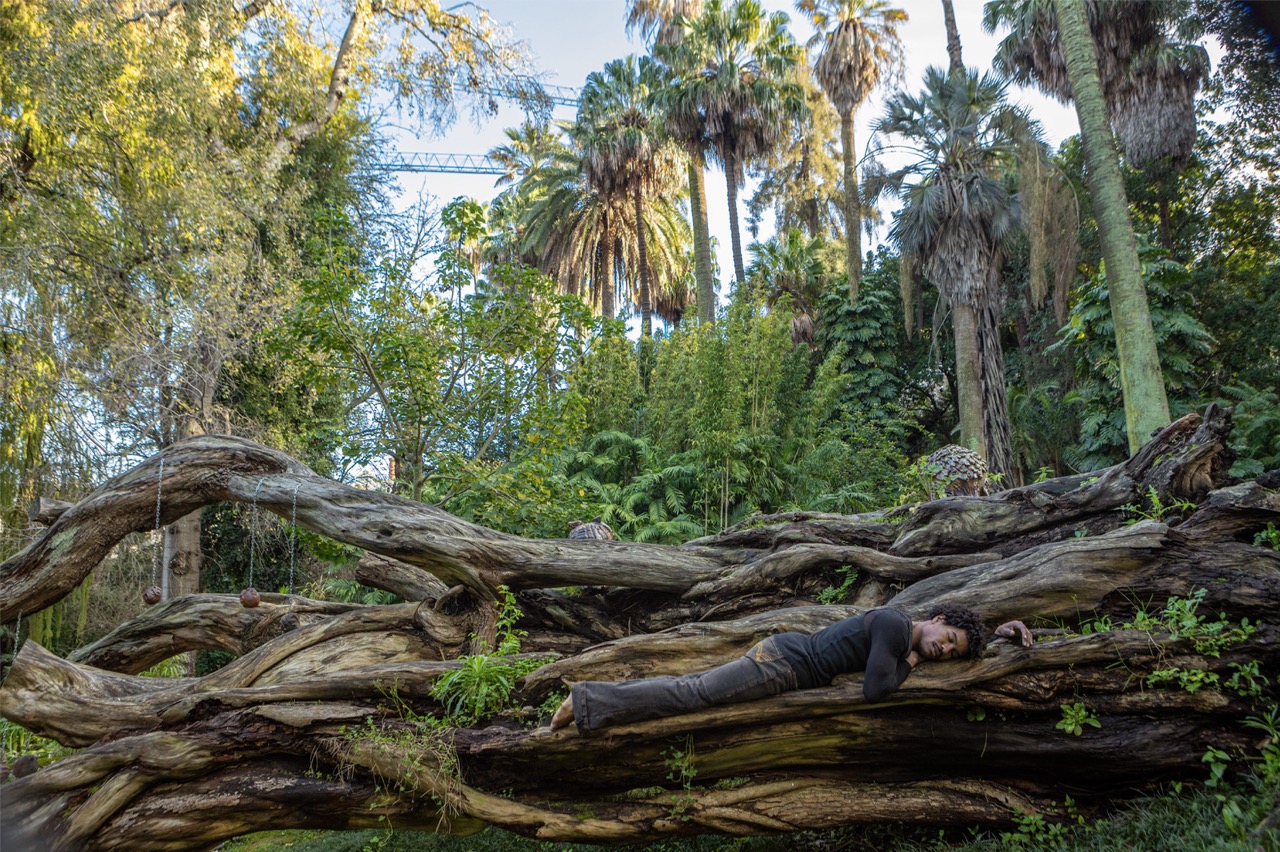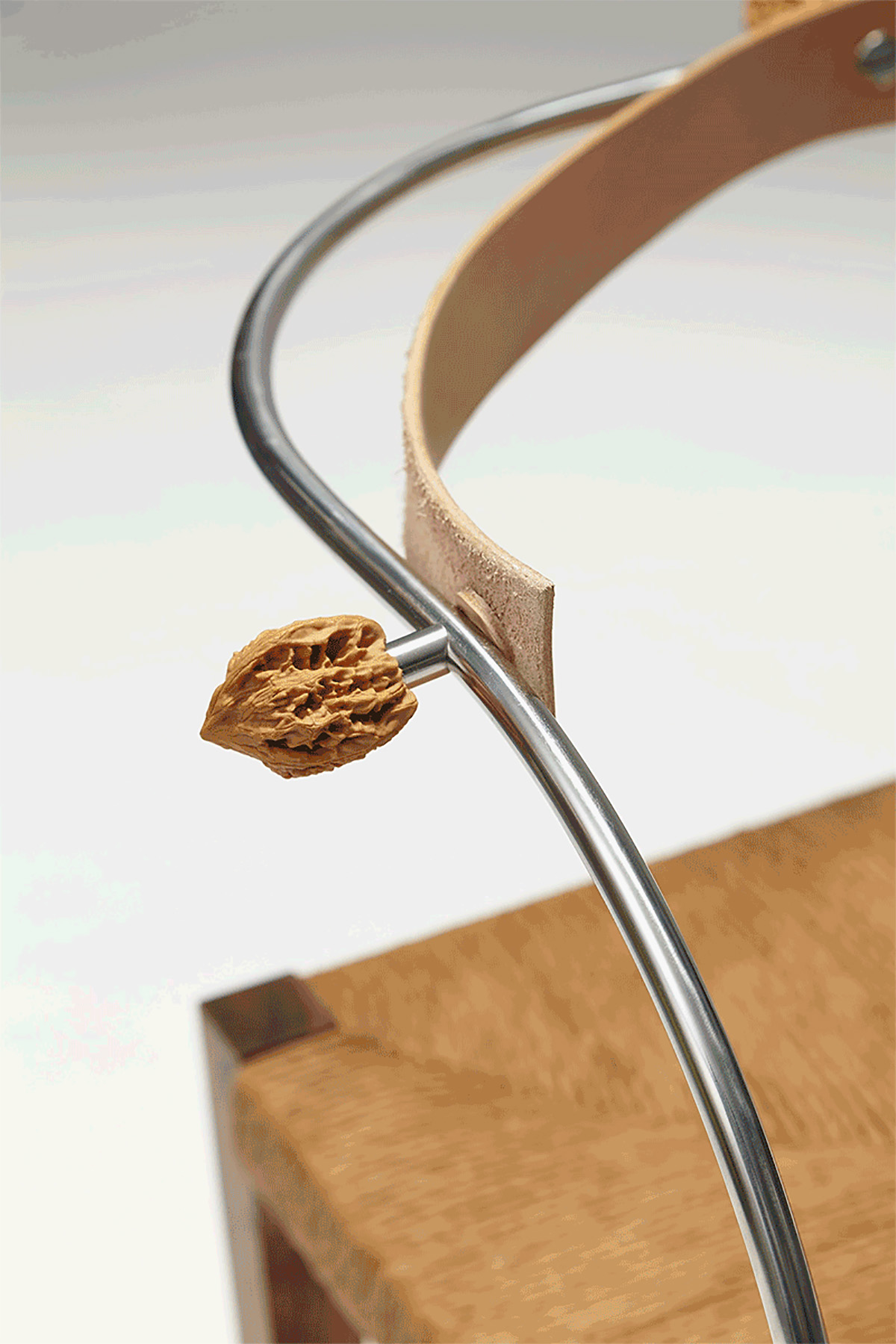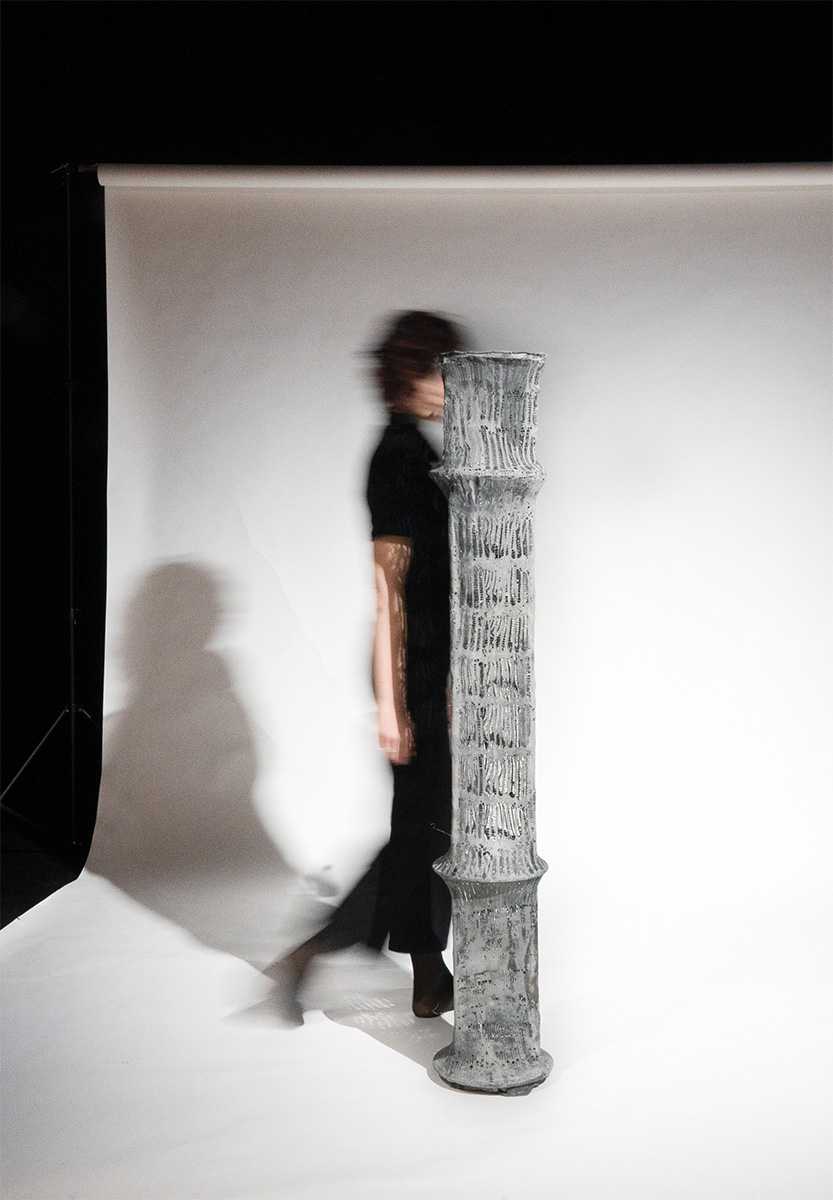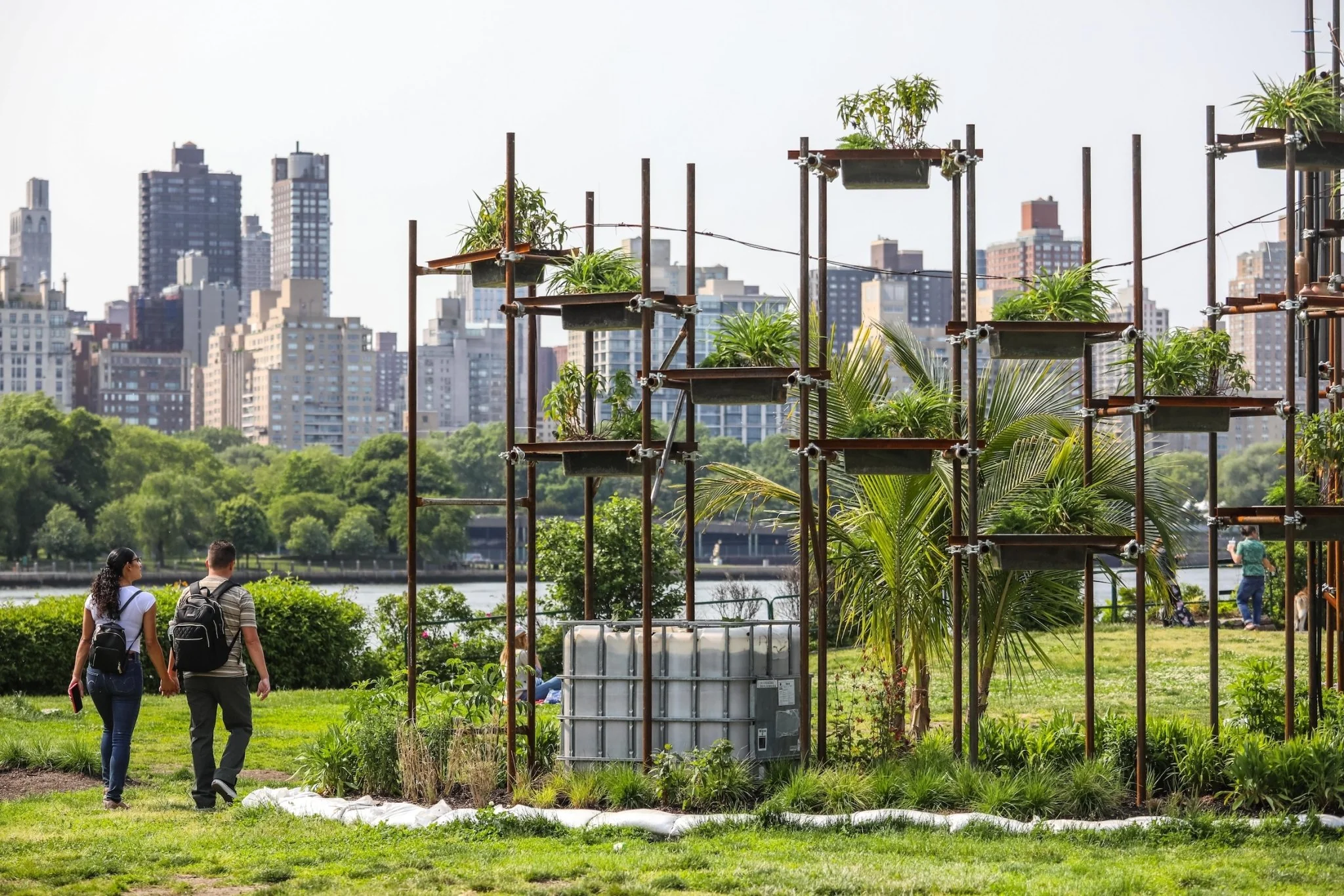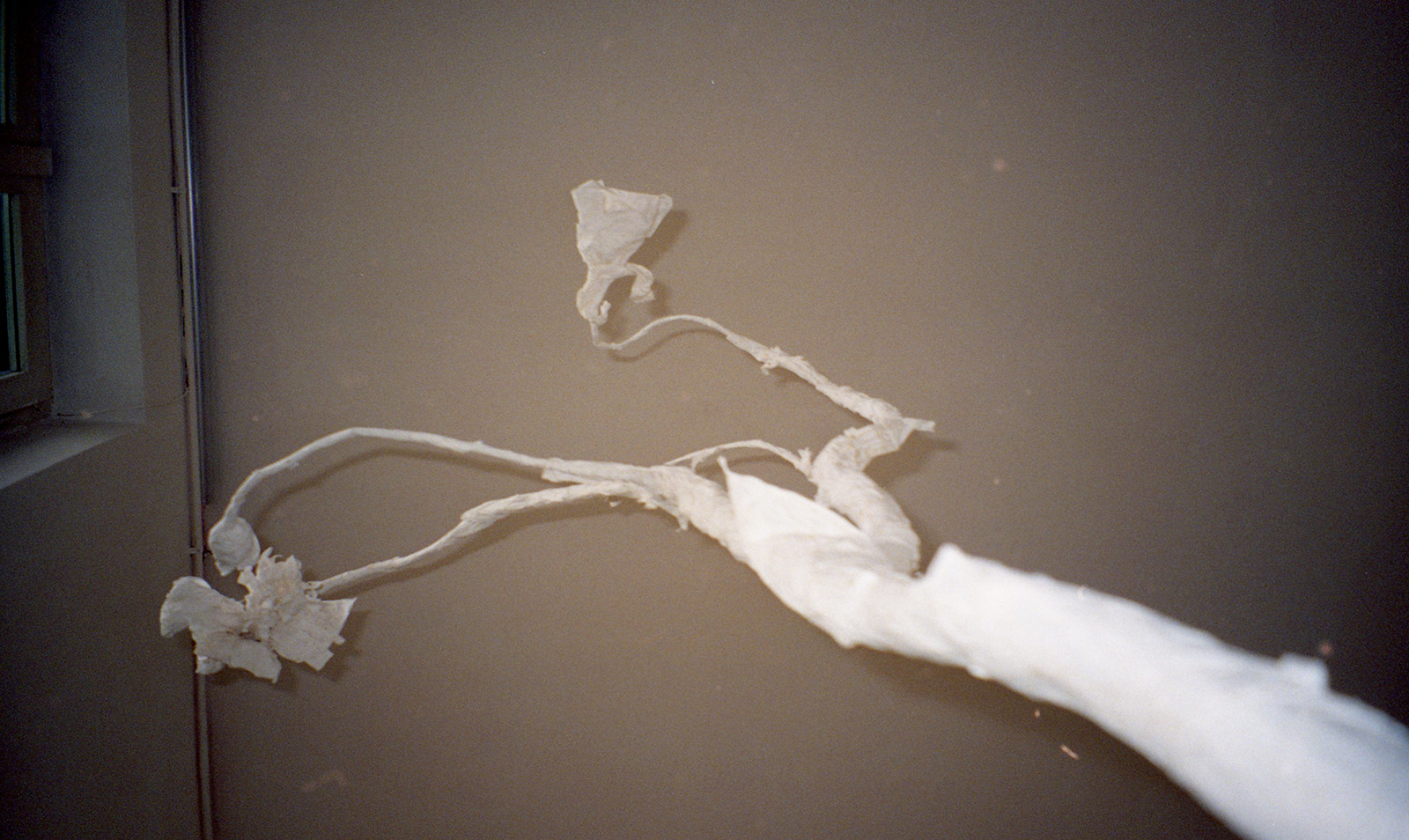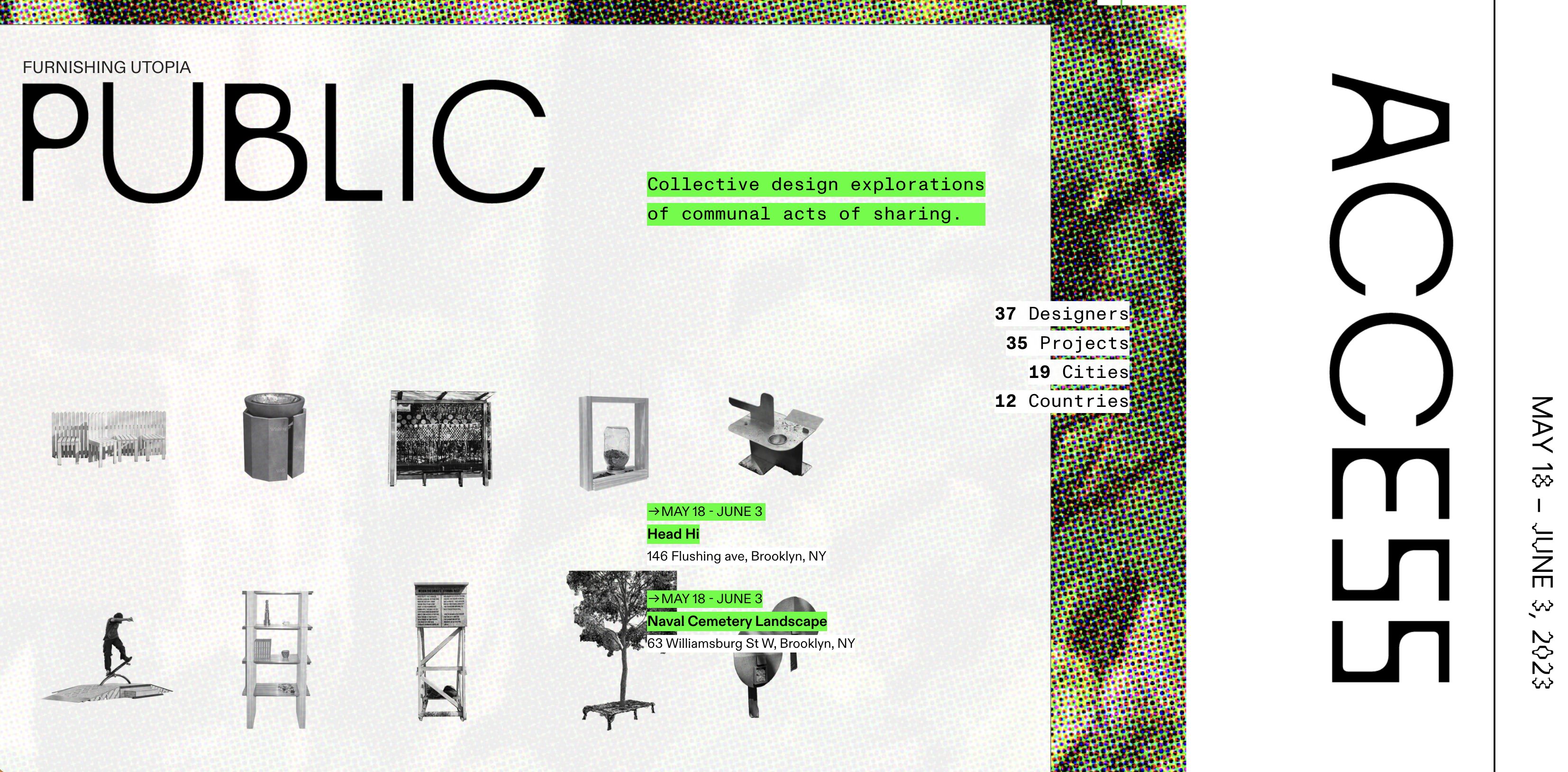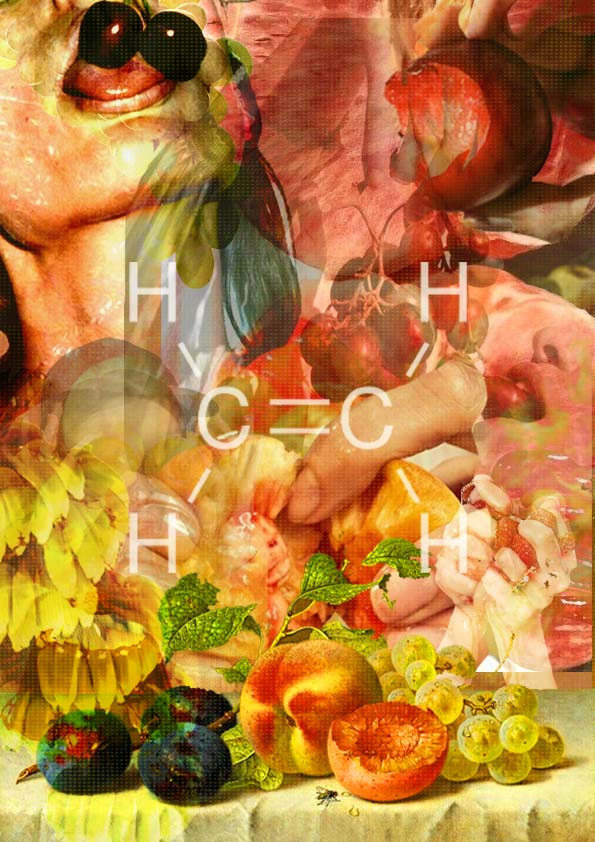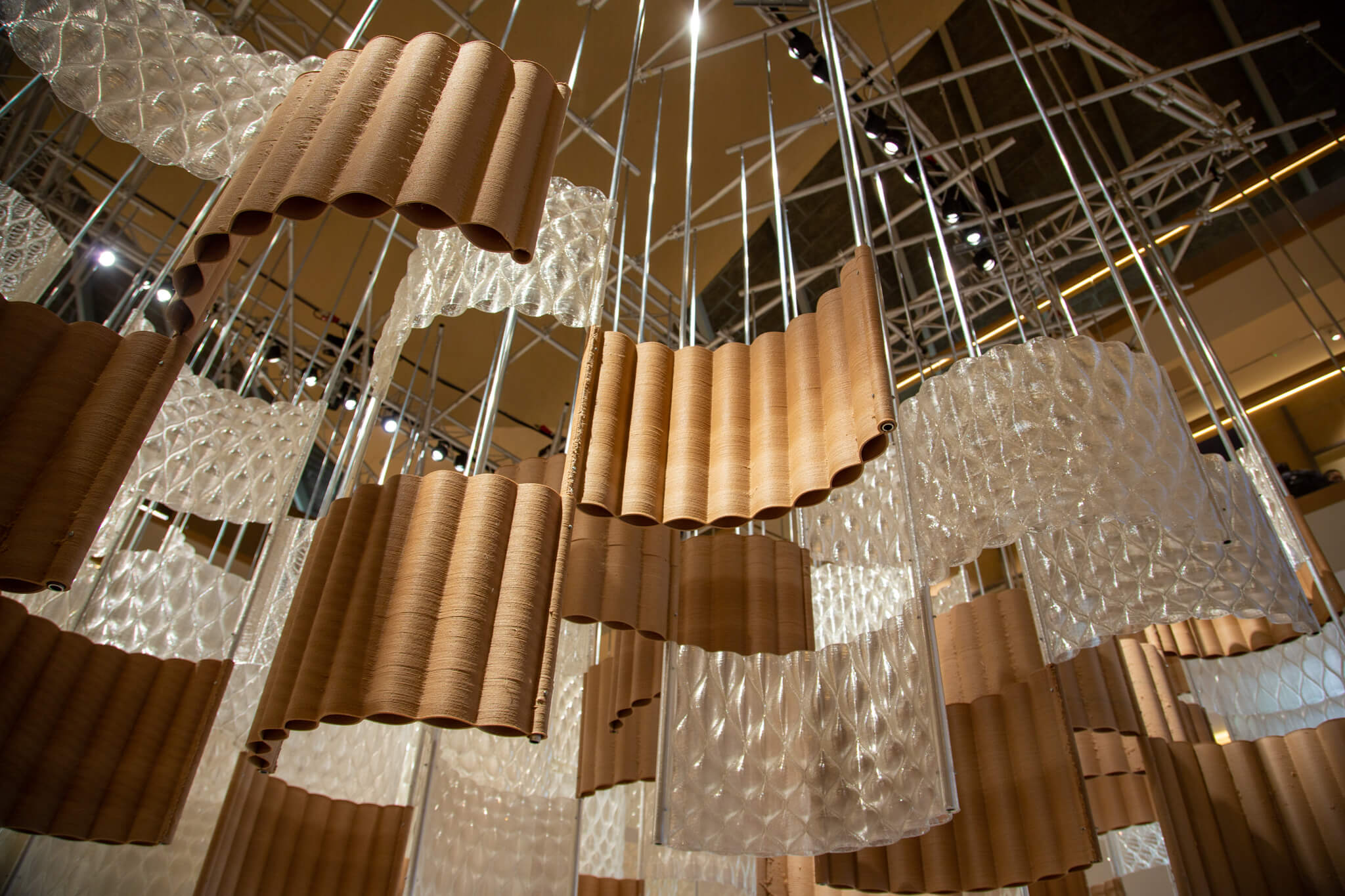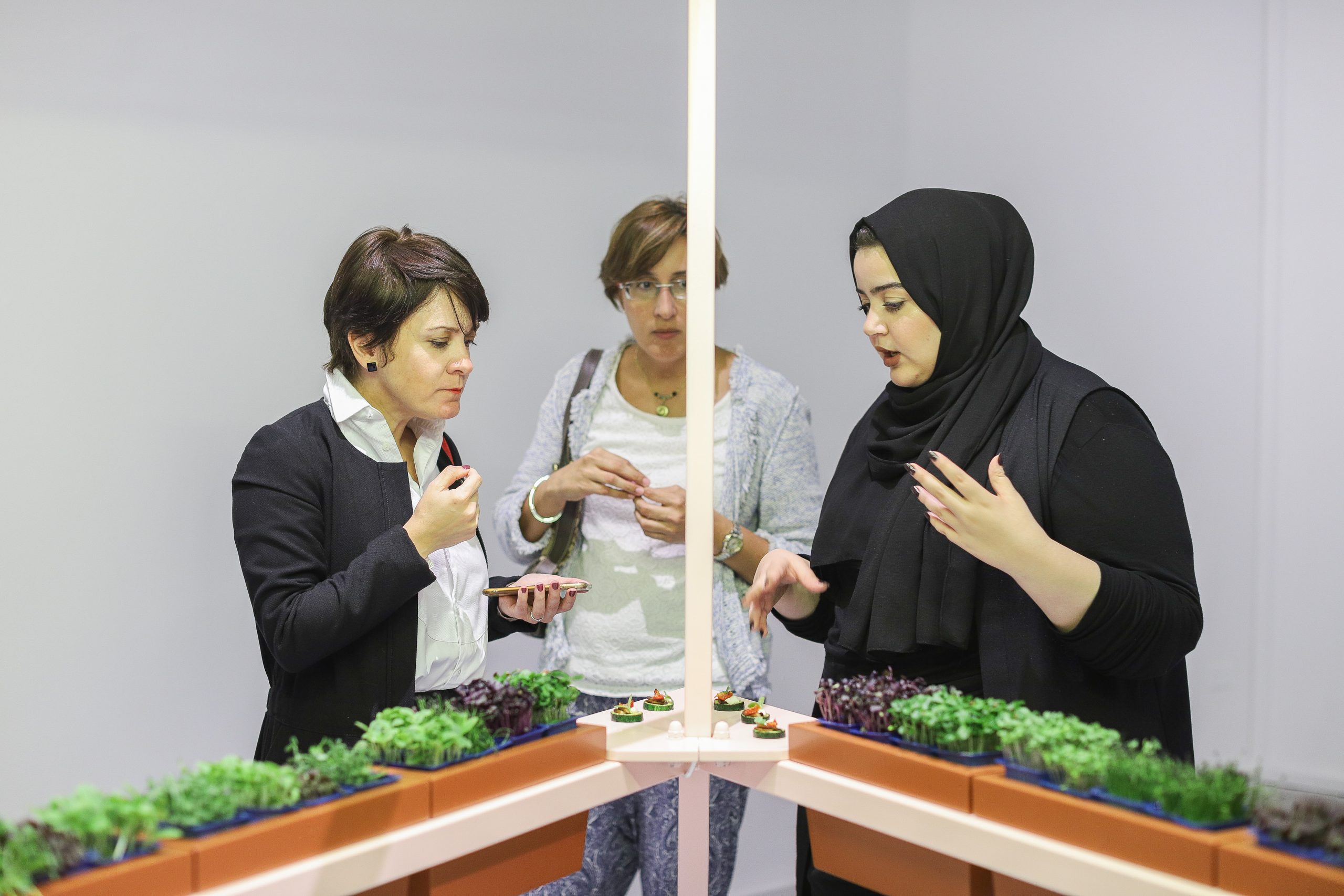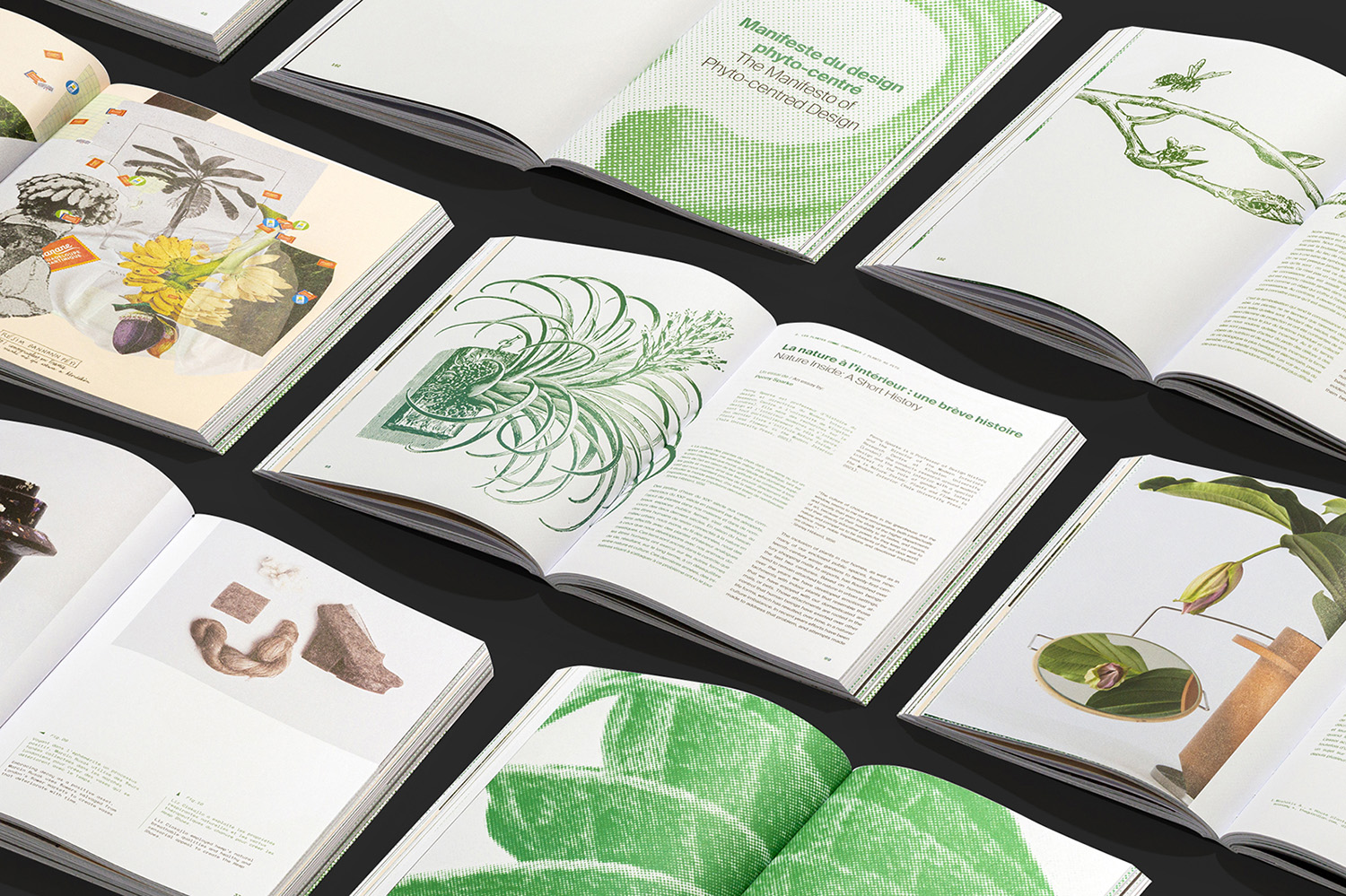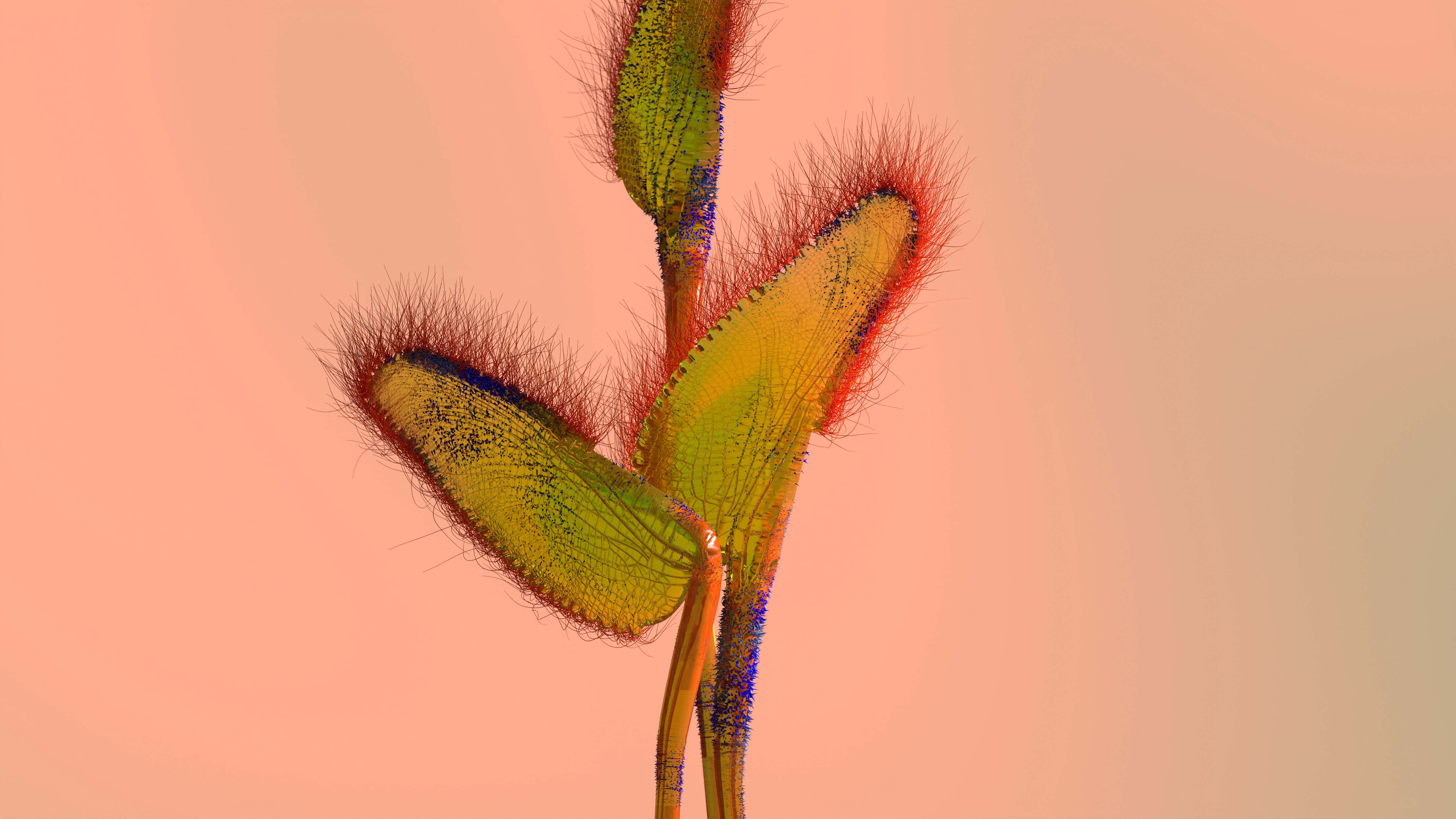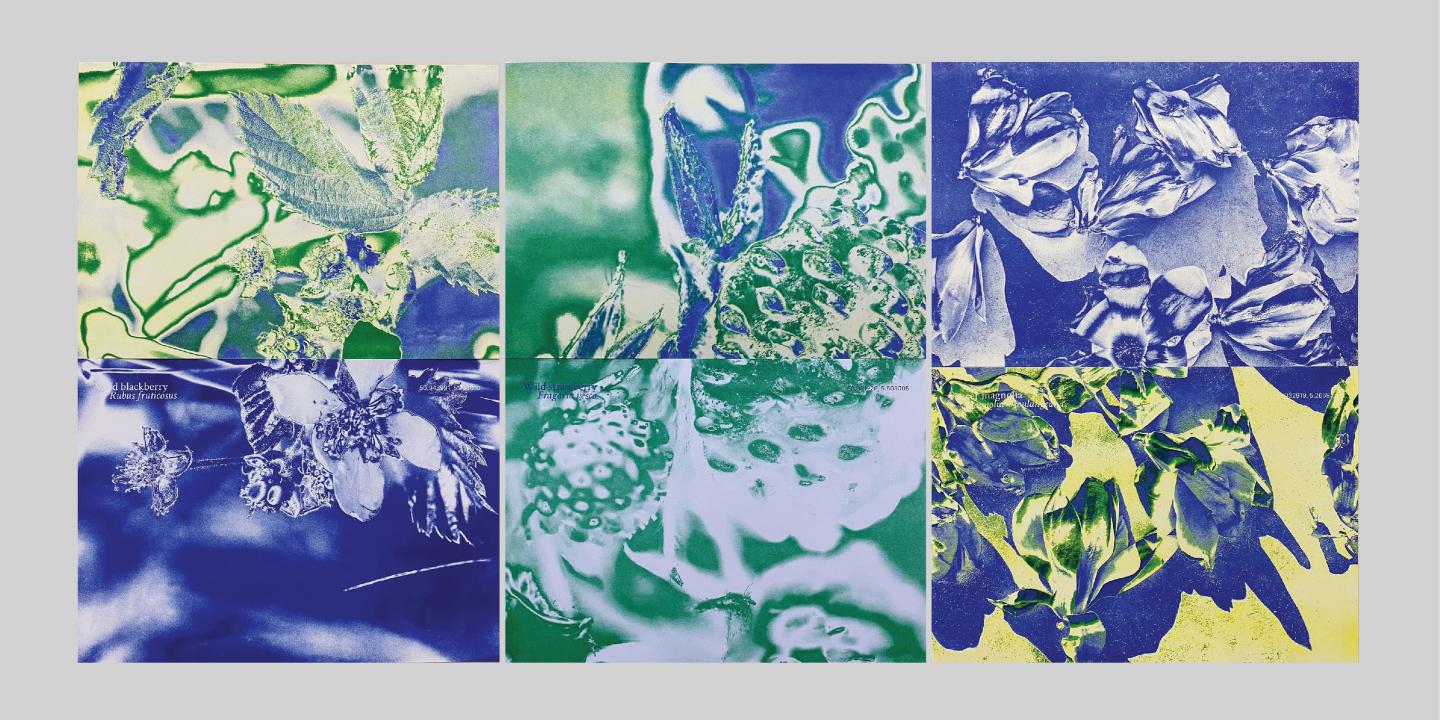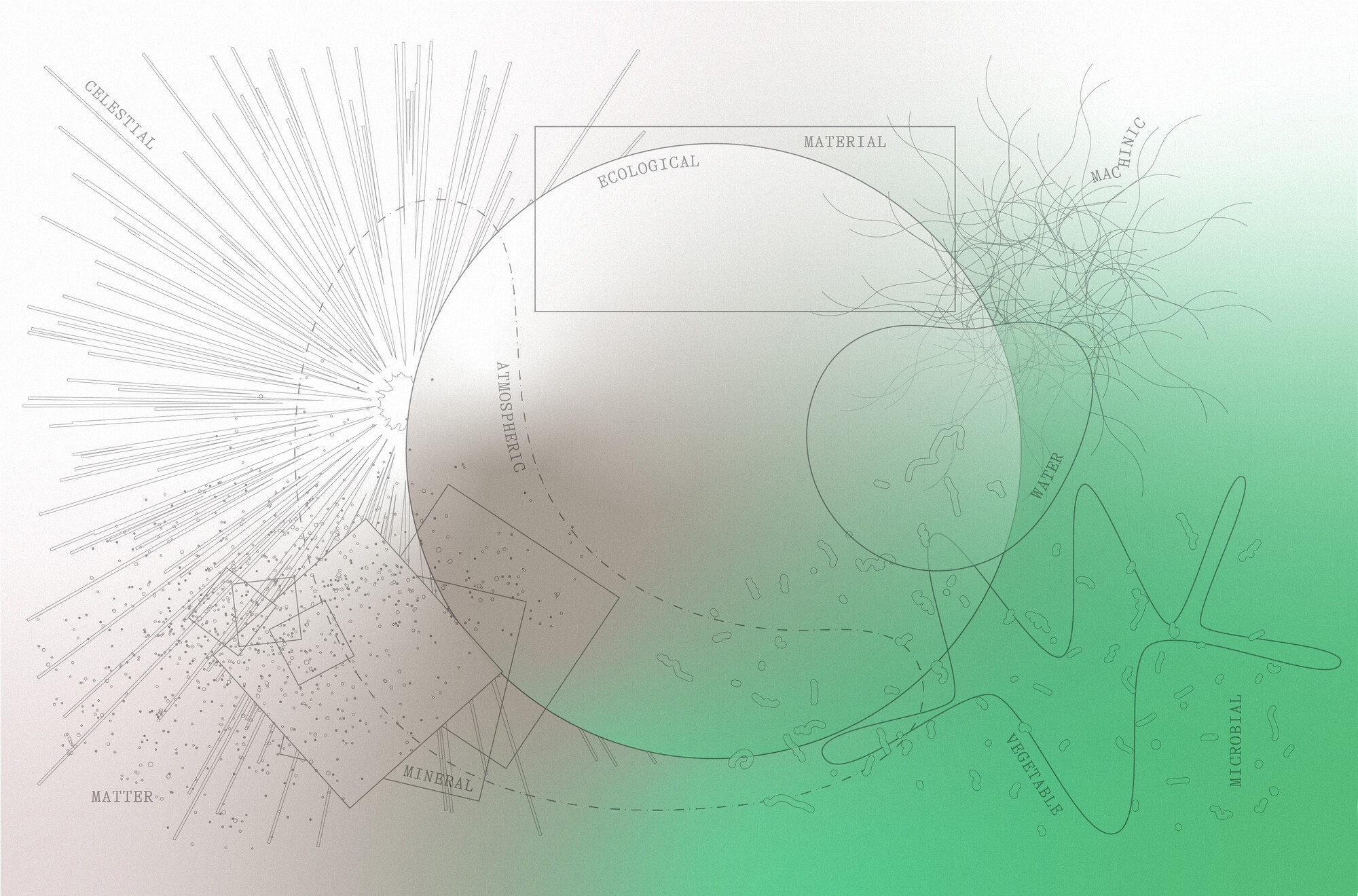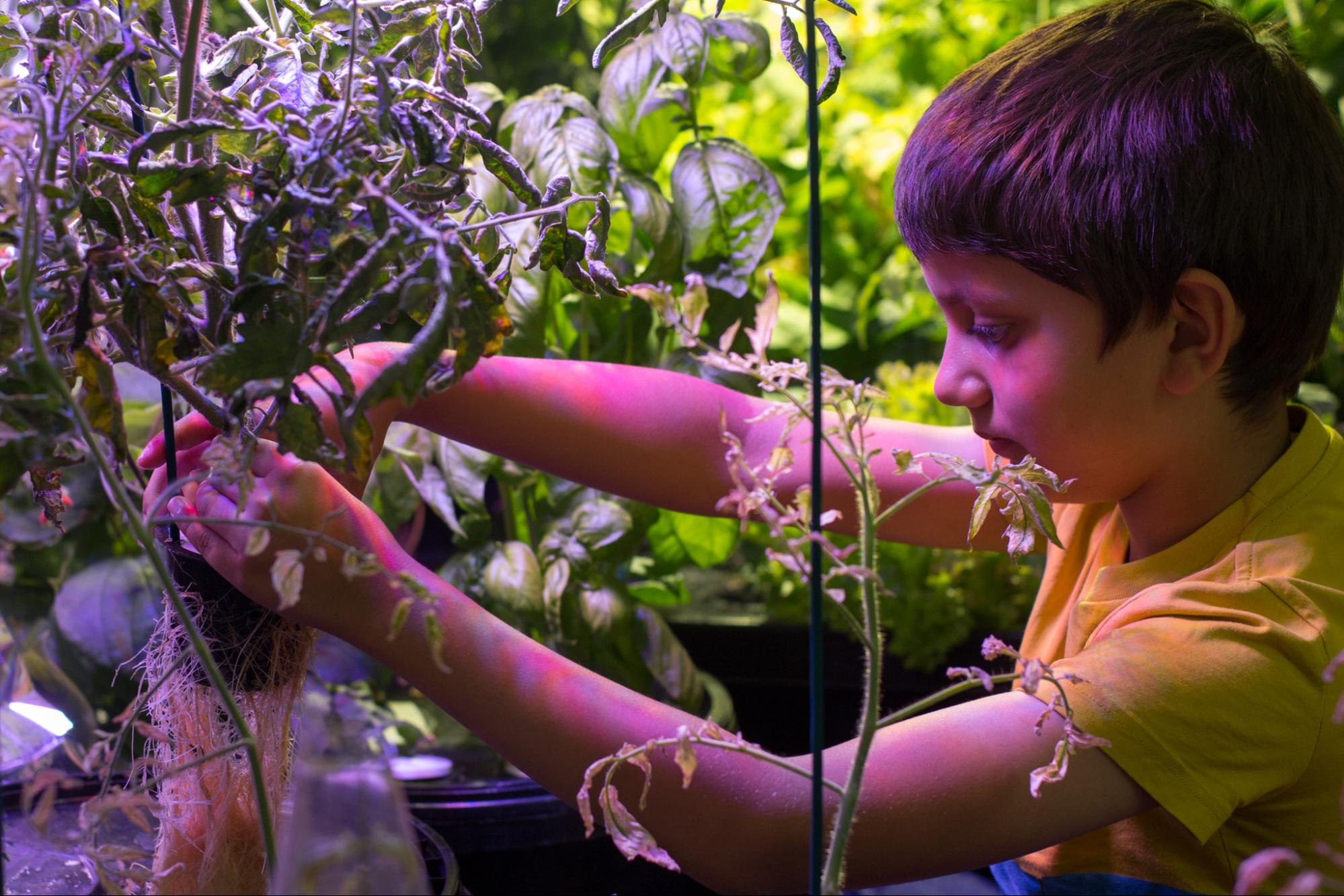This story is a part of MOLD’s reader-submitted project series. Submit your projects here for consideration.
The Milan-based interdisciplinary agency 2050+ has taken part in the 10th edition of the International Architecture Biennale of Rotterdam with a commissioned project entitled Synthetic Cultures, an exhibition that looks at cultured meat – meat that is produced in vitro using tissue engineering techniques – from a multitude of perspectives, dissecting its politics, ethics, spatial-environmental implications, and history, as well as envisioning the foreseeable impacts of its development.
All images courtesy of Gaia Cambiaggi.
As animal agriculture continues to erode biodiversity, monopolize arable land, incubate zoonotic diseases, and raise multiple ethical issues, lab-grown meat promises to be a potential solution – the acceleration of which could present an affordable, sustainable and ethical alternative to animal products, end fears of future food scarcity, and reduce the environmental impact associated with traditional animal farming. Yet, behind the conception of cultured meat as a technological shortcut, a number of questions remain unanswered.
Synthetic Cultures brings together a constellation of objects, documents, found footage and animation that speak to the history, the status quo and the likely effects of a technology that could potentially ignite new ways of living in a not-too-distant future. Drawing from popular culture, alongside academic research, the exhibition discusses a series of open-ended questions posed to human and other-than-human communities by the possible introduction of cultured meat in our diets.
Questions that pertain to the corporeal, and those that intersect the cultural, ethical and economic domains, all of which manifest themselves on the ground across a variety of scales and spatial formations. From the level of a cell, the design of the micro-structures onto which meat is grown, the architecture of past and future sites of production, the agricultural landscapes and their possible futures when liberated from animal farming.
The project consists of two main components:
A video installation in which three CGI avatars report to us from three different imaginary futures, set 50 years from now, in 2072. As oracles speaking from other temporalities, they sketch out different scenarios, imagining what might happen if cultured meat was produced at scale.
Avatar A talks from a future in which cultured meat has been successfully implemented as (yet another) techno-capitalist and exploitative industry in the context of unfettered capitalism;
Avatar B portrays a world in which cultured meat has been implemented at a grass-roots level, through open source protocols, allowing for local mobilization and land restoration;
Avatar C portrays a space of ambiguity, in which various (and at times contrasting) positions coexist: for some, cultured meat has found domestic application; for others, artificial flesh is a metabolic rift technology to be fought against.
An installation gathering an array of objects–lab props, microscopic photographs, legal documents, academic papers, fictional books–representative of the rich, layered and diverse universe that is lab-grown meat.
ABOUT THE PRACTICE
2050+ is a Milan-based interdisciplinary agency that works across technology, the environment, politics, design and visual culture.
2050+ is made up of Erica Petrillo, Ippolito Pestellini Laparelli, Kamil Hilmi Dalkir, Massimo Tenan, and Meera Baldran.
The project team includes:
Voice-over: Caterina Yuka Sforza
Video Editor: Giorgio De Marco
Script Editor: James Westcott
Sound Designer: Giacomo Guglielmo Gorla
Scientific Advisor: New Harvest (Dwayne Holmes, Richard Thyden)
Interviewees : Ben Wurgaft, Daan Luining (Meatable), Federico Campagna, Franco Berrino, Ingrid Newkirk (PETA), Ionat Zurr (SymbioticA), LinYee Yuan (MOLD magazine), Luisa Torri (University of Gastronomic Sciences), Oron Catts (SymbioticA), Riccardo Migliavada (University of Gastronomic Sciences)
